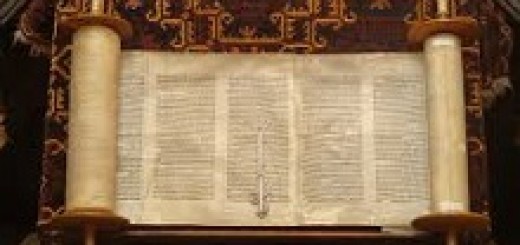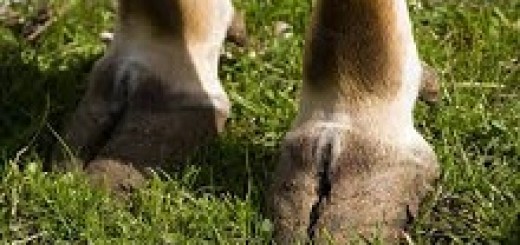By Rabbi David Sterne
This week’s Torah portion, Korach, narrates a rebellion that took place among the Levites and some of their neighbors in the desert encampment, against Moshe Rabeinu. On the surface, the rebellion appeared as a routine rejection of Moshe Rabeinu’s authority, but our sixteenth century sage, the Megaleh Amukot (R’ Nosson Nata Shapira, of Cracow), as usual has s different take on the situation…
To begin with, R’ Shapira mentions what the Ari z’l said about creation: Based on the verse (Gen 1:2), “And the spirit of God hovered (merachefet) over the waters,” the Ari declared that there were 288 “sparks of holiness” that fell into realms of creation that conceal and oppose holiness. It is our job to retrieve them through fulfillment of Torah and mitzvoth. He derives that from the word merachefet, (mem-reish-chet-peh-tof), which breaks down into two words, rapach (reish-peh-chet) meit (mem-tof), or “288 (the gematria of rapach) died.” Most of those sparks fell into the “armpit” of the world at that time, that was ruled by sorcery and idol worship – Egypt. And that’s why the Jews descended to Egypt and to slavery – in order to retrieve those 288 sparks.
Now, when Moshe Rabeinu took the Jews out of Egypt, the Ari tells us, he managed to retrieve 202 of the 288 sparks that had fallen there. Originally, this task was placed in the hands of Yoseph the tzadik when he descended to Egypt. His nominal task was to “provide supplies” not only to his own family when they eventually joined him in Egypt, but to the entire land of Egypt. The Hebrew for “provide supplies” is lishbor bar, wherein bar (“supplies”) carries the gematria of 202. Furthermore, when Yaakov, Yoseph’s father joins him in Egypt, he says “Rav (reish-beit, or 202), is my son Yoseph still alive?” And a few generations later, a “new” Pharoah said, “The nation of Israel is greater (rav – 202) and mightier than us, come let us cleverly outwit him (lo, spelt lamed-vov).” Wen spelt out to its fullest the word for “them” (lo) carries the gematria 86, which is the number of sparks remaining to be uplifted after the Jews left Egypt. It was these remaining 86 sparks that Moshe sought to uplift and rectify when he ascended Mt Sinai to receive the Torah. In addition, he brought the erev rav (“mixed multitude” of 202 sparks) out with him to accompany the Jews through the desert to the holy land. Apparently, Moshe Rabeinu did not succeed in uplifting the remaining 86 sparks, but he instead took the remains of Yoseph (who had died some 180 years earlier) with him on the way out of Egypt, in order to retrieve the remaining 86 sparks.
And, according to R’ Shapira, it was over this entire process that the rebellion developed. Korach, the leader of the rebellion claimed (Num 16:3), Rav (202) lachem – “You have overstated your case,” for you claim that you uplifted these 202 sparks, but that is not the case. “The entire congregation is holy,” and they had a share in uplifting the sparks. To which Moshe replied (Num 16:7), Rav (202) lachem b’nei Levi – “You have exaggerated, children of Levi… Is it a small (hame’at) thing that the God of Israel has distinguished you from the rest of the Israelites to serve in the tabernacle…” (Num 16:9). R’ Shapira points out that the word me’at (“small thing”) carries the gematria of 119, and refers to the 120 combinations of letters that can be formed from the divine name, Elokim. With this challenge, Moshe Rabeinu hints to the Levites that they cannot even achieve full actualization of the name Elokim, (which is a spiritually “small” task compared to elevating the 202 sparks), so why do they presume to be able to deliver the 202 sparks? There were 86 (gematria Elokim) sparks that remained in Egypt after the Jews left, which the Levites were unable to uplift. So, Moshe reminds them of this, saying that since they were unable to elevate the 86 sparks since they did not master the divine name Elokim with all of its 120 permutations, how could they expect to elevate the 202 (gematria rav) sparks? That was a job for Moshe Rabeinu, to whom was revealed the higher divine name, Havaya. It was not to be expected of the Levites who were associated with the name Elokim.
Further on, R’ Shapira elaborates on the argument between Moshe Rabeinu and Korach. He suggests that Korach’s argument was not about “who” uplifted the 202 sparks, but about why they did so. All of the bad events that befell the Jews in the desert and even later, claimed Korach, were caused by the erev rav, or 202 sparks of holiness that were lifted out of Egypt. And thus, Korach claimed against Moshe that because he took the erev rav, or “mixed multitude” out of Egypt, he caused the Jews to sin with the golden calf. That is why God said to Moshe as he descended from Mt. Sinai (Ex 32), “your nation has sinned.” The implication is that it was “Moshe’s nation,” and not “God’s nation,” who sinned with the golden calf. And that is why Korach said to Moshe (Num 16:3), Rav (202) lachem – you have brought upon us the erev rav, who have caused all of our problems. “The entire nation is holy” – the other Jews, not those from the erev rav, are considered toch – “within,” as written “I am sanctified within (toch) the children of Israel” and also the ten sons of Yaakov were “among (within – toch) those who came to obtain supplies…”(Gen 42). The erev rav, though was considered to be the klipah, or “shell” that surrounds the toch, as a shell or peel surrounds the fruit within it. Moshe felt that the klipa (the erev rav) would become refined and enter into the realm of kedusha, or holiness, which is why he took them out of Egypt with the rest of the nation. And so it will be in the future, when “all the impurity will be wiped off the face of the earth.” King Solomon had a similar intention when he married a thousand non-Jewish women (after they converted), thinking that they could become rectified and holy. The Jews are “within” (toch) since we are the tools and vessels of God’s will in creation, but those who seek to become part of the Jewish nation, but lack sincere intention, may be considered to be klipah, “external shell.”
However, to this Korach replied, “Why do you rise up to separate yourselves?” – You are the ones who caused us all the problems, whether with the calf, or with the “complainers” at Kivrot Hata’ava. All these problems were caused by the erev rav who you, Moshe took out of Egypt. Furthermore, Datan and Aviram added to the complaints against Moshe, claiming that the sin of the calf led ultimately to the destruction of the first Temple (because of idolatry, sexual impropriety and murder), and the sin of the spies led to the destruction of the second Temple (over senseless hatred). So ultimately according to this commentary, Korach and his crowd complained that everything was the fault of Moshe for insisting on removing the erev rav (klipah) from Egypt together with all the Jews (toch).
Regarding the calf, Moshe replied to them, “Listen now, sons of Levi.” The word for “Listen” is shimu, and R’ Shapira tells us that it is an allusion to the tribe of Shimon. Now, why would Moshe allude to Shimon when speaking with the tribe of Levi? R’ Shapira suggests that Moshe’s purpose was to remind the Levites that it was they (Levy) and Shimon who conspired to kill Joseph, leading ultimately to his descent to Egypt. So, Moshe was hinting to them that it was not he who caused the golden calf, , but they, by causing Joseph to descend to Egypt. Because they did so, Moshe had to take Joseph’s bones out with him when the Jews returned to Israel. After he did so, using a silver plate upon which was written, “Rise oxe,” Micah used the same plate to create the golden calf (as related in Rashi on the Torah). So, Moshe tells the Levites that it was not he or the erev rav, but they who caused the sin of the golden calf.
And to Datan and Aviram, who claimed that allowing the erev rav to exit with the Jews resulted in the destruction of the two temples, Moshe did not answer them directly. Upon hearing their laconic accusations, he prayed to God: Regarding the erev rav, who were very coarse and physical, he said, “I did not take even one of their donkeys.” The word for “donkey” is chamor, also indicating chumriyut or coarse physicality. Moshe indicated that he did not remove them from Egypt for his own good. And about the spies, Moshe prayed, “I did nothing wrong to any of them.” Even though Moshe agreed to their scouting expedition to Israel, his intention was positive, not negative. By praying, Moshe hoped to escape the accusations of the Korach and his henchmen who claimed that he was at fault for bringing the erev rav out of Egypt together with the Jews.
Rabbi David Sterne is a prolific author on chassidic thought and has translated many of its seminal works. He resides in Israel and is the director of Jerusalem Connection. To read more of his work and to purchase his books visit http://www.jewishspiritualbook






















